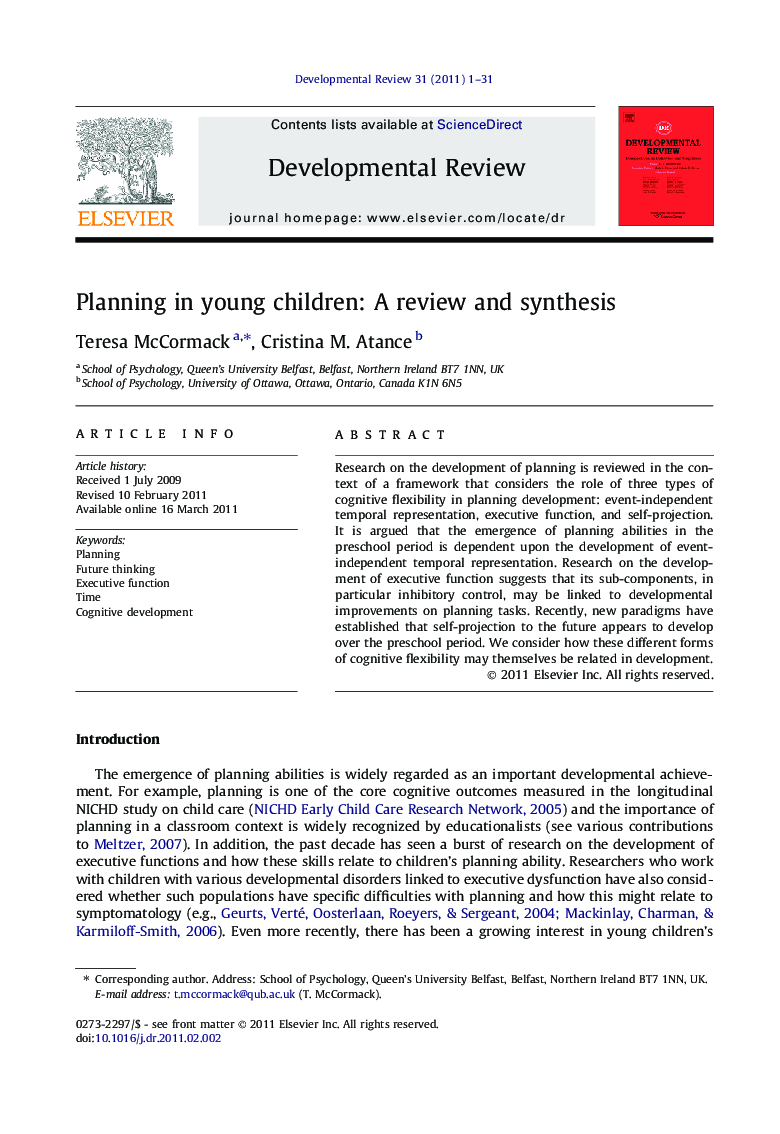| کد مقاله | کد نشریه | سال انتشار | مقاله انگلیسی | نسخه تمام متن |
|---|---|---|---|---|
| 353532 | 618816 | 2011 | 31 صفحه PDF | دانلود رایگان |

Research on the development of planning is reviewed in the context of a framework that considers the role of three types of cognitive flexibility in planning development: event-independent temporal representation, executive function, and self-projection. It is argued that the emergence of planning abilities in the preschool period is dependent upon the development of event-independent temporal representation. Research on the development of executive function suggests that its sub-components, in particular inhibitory control, may be linked to developmental improvements on planning tasks. Recently, new paradigms have established that self-projection to the future appears to develop over the preschool period. We consider how these different forms of cognitive flexibility may themselves be related in development.
Research highlights
► Research on the development of planning is reviewed.
► Planning development is conceptualized as due to changes in cognitive flexibility.
► We distinguish between three types of cognitive flexibility.
► We consider how these types of cognitive flexibility are related.
Journal: Developmental Review - Volume 31, Issue 1, March 2011, Pages 1–31